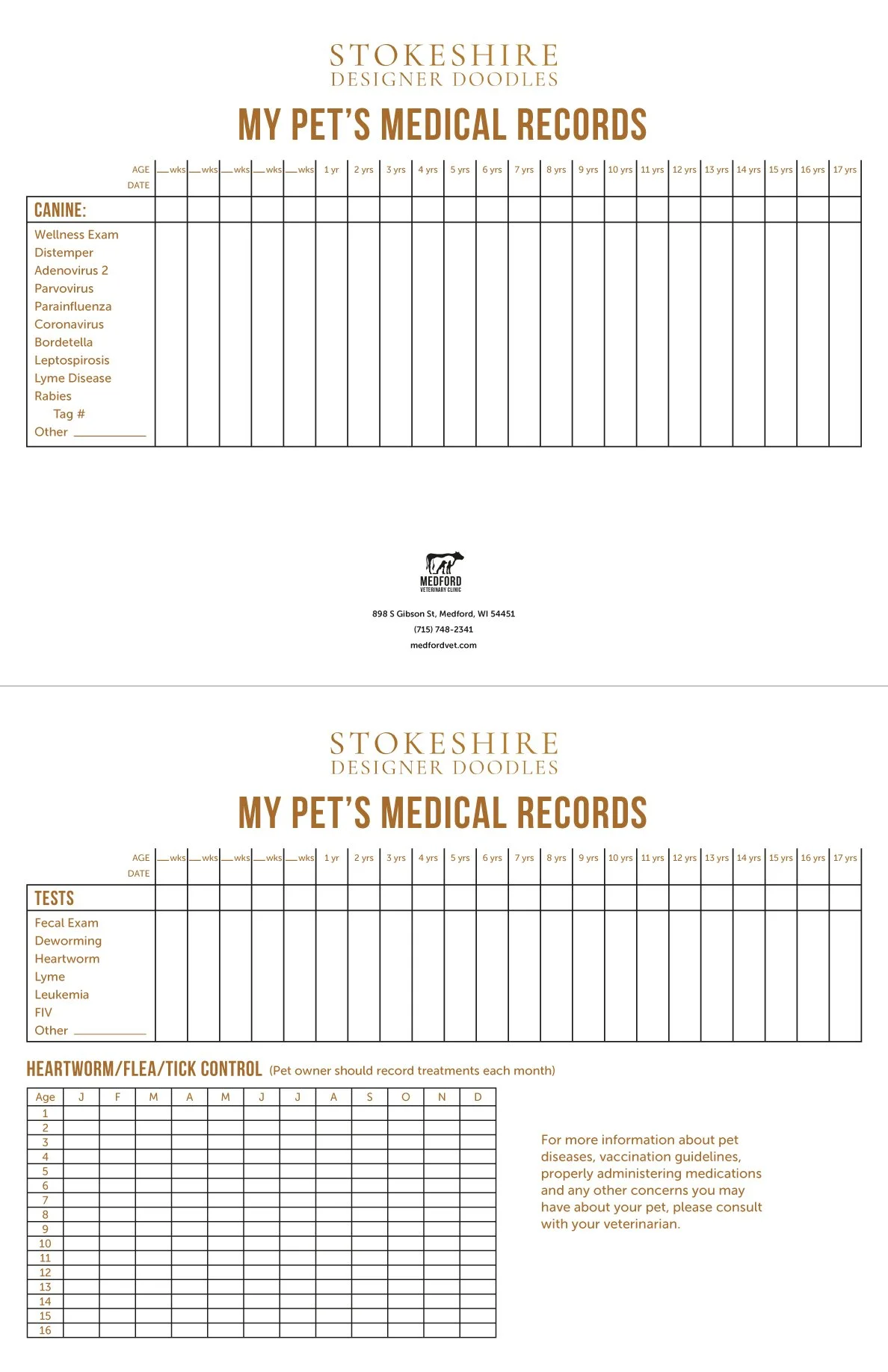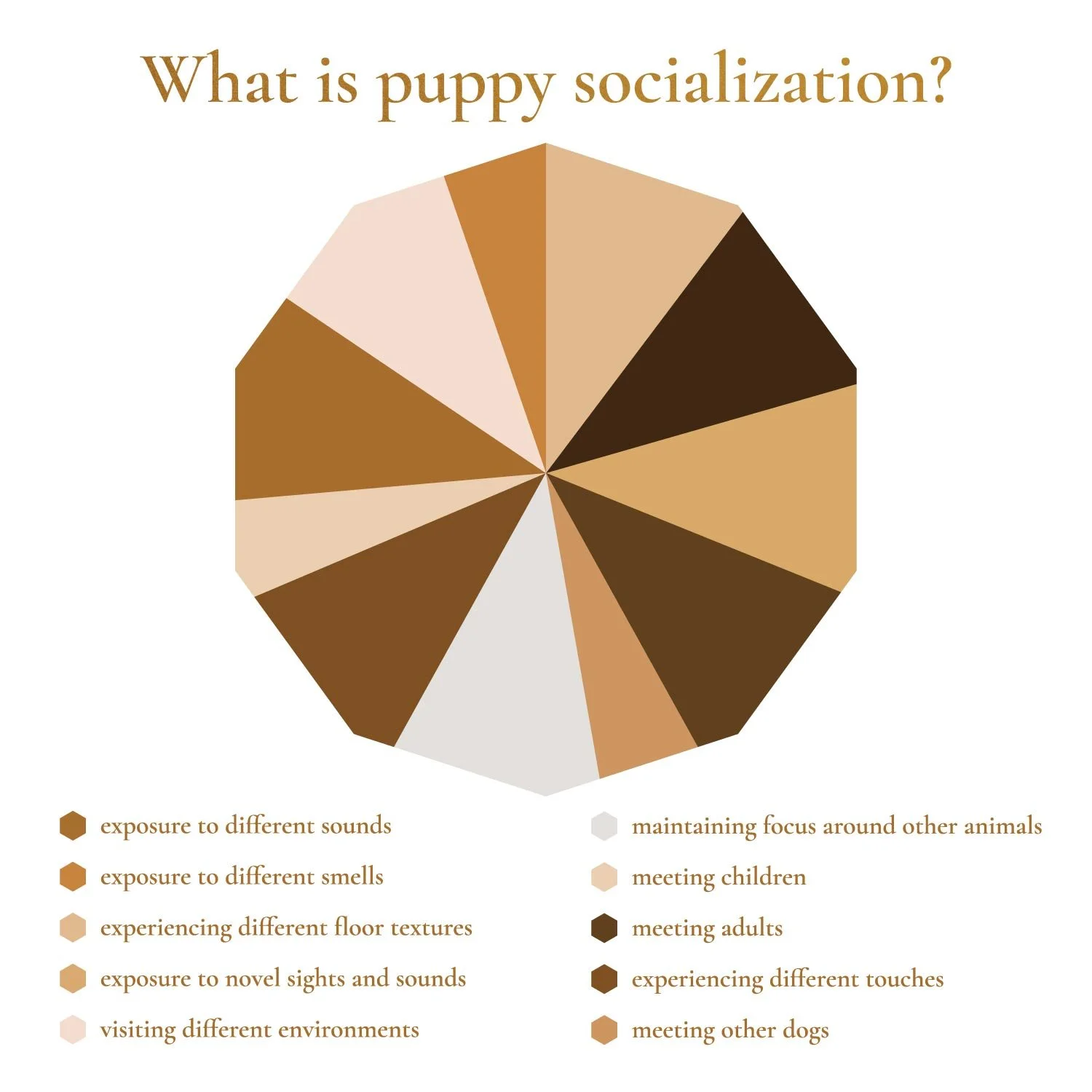How to Keep Your Doodle Puppy Safe Before They are Fully Vaccinated
Bringing home a new puppy is an exciting and joyous occasion, but it also comes with great responsibility. Ensuring your Doodle's safety and well-being during the initial weeks is crucial since puppies are more vulnerable to infections and diseases before they complete their vaccination schedule. This comprehensive guide will help you understand the vaccination timeline, the importance of early protection, and provide practical tips for creating a safe environment for your furry friend.
Understanding the Vaccination Timeline
Vaccinations are essential in protecting your puppy from various infectious diseases. Here's a breakdown of the essential vaccinations and when they are typically administered:
6-8 Weeks: The first round of vaccinations usually includes Distemper, Hepatitis, Parvovirus, and Parainfluenza (DHPP). Some veterinarians may also recommend a Bordetella vaccine for kennel cough.
10-12 Weeks: The second round of DHPP vaccinations. Depending on the region and your veterinarian's advice, Leptospirosis and Lyme disease vaccines may also be administered.
14-16 Weeks: The final round of DHPP vaccinations, along with the Rabies vaccine, which is often required by law.
12-16 Months: Annual booster shots for DHPP and Rabies, along with any other vaccinations recommended by your vet.
Recommended Multi-Purpose Wipes All Purpose Cleaning Puppies to protect against Parvo and other viruses/diseases
The Importance of Early Protection
The period between acquiring your puppy and their full vaccination is critical. During this time, your puppy's immune system is still developing, making them more susceptible to diseases. Taking extra precautions can prevent serious health issues and ensure a healthy start for your Doodle puppy.
Indoor and Outdoor Safety Tips
Indoor Safety Tips
Clean Living Area: Keep your puppy's living area clean and sanitized. Make sure their bedding, toys, and feeding bowls are disinfected regularly.
Restricted Access: Limit your puppy's access to certain areas of your home until they are fully vaccinated. This minimizes exposure to potential hazards and surfaces that might harbor harmful pathogens.
Avoid Contact with Unvaccinated Pets & Feces: If you have other pets, ensure they are up-to-date with their vaccinations. Avoid exposing your puppy to unvaccinated animals, as they could transmit diseases.
Proper Hygiene: Wash your hands thoroughly before and after handling your puppy. This reduces the risk of transferring germs that could make your puppy sick.
Wash Paws and Mouth: Use recommended wipes to clean their feet and mouth after going outside.
Outdoor Safety Tips
Controlled Environment: Take your puppy to controlled environments, such as your backyard, where you can monitor their activities and interactions.
Avoid High-Risk Areas: Steer clear of places frequented by other dogs, such as dog parks, until your puppy is fully vaccinated. These areas can be breeding grounds for infections.
Use a Leash: Always keep your puppy on a leash during walks. This prevents them from coming into contact with potentially contaminated surfaces or ingesting harmful substances.
Safe Socialization: Introduce your puppy to new experiences and environments gradually. Arrange playdates with fully vaccinated dogs in controlled settings.
Socialization Strategies
Socialization is critical for your puppy's development, helping them grow into well-adjusted adult dogs. However, it must be done safely before they are fully vaccinated. Here are some strategies:
Controlled Playdates: Arrange playdates with fully vaccinated dogs in a secure environment. This helps your puppy learn social cues and behaviors without the risk of infection.
Exposure to New Experiences: Gradually introduce your puppy to various sounds, sights, and surfaces within your home and backyard. This helps them become accustomed to different stimuli, reducing fear and anxiety.
Positive Reinforcement: Use treats, praise, and gentle encouragement to reinforce positive behaviors and associations. This builds your puppy's confidence and trust in new situations.
Puppy Classes: Some training centers offer specialized puppy classes that focus on socialization in a controlled and safe environment. Ensure the facility requires all participants to be up-to-date with their vaccinations.
Health Monitoring
Keeping a close eye on your puppy's health is vital during the early weeks. Here’s what to look out for:
Appetite and Weight: Monitor your puppy's eating habits and weight. Sudden changes could indicate health issues that require veterinary attention.
Energy Levels: Healthy puppies are typically active and playful. If your puppy appears lethargic or less interested in activities, consult your vet.
Bowel Movements: Regular and healthy bowel movements are a sign of good health. Diarrhea or vomiting can be symptoms of underlying problems.
Behavioral Changes: Sudden changes in behavior, such as excessive scratching, coughing, or difficulty breathing, should be addressed promptly.
Regular Vet Check-ups: Schedule regular veterinary check-ups to ensure your puppy is growing healthily and to address any concerns.
Conclusion
Ensuring your Doodle puppy's safety before they are fully vaccinated requires careful planning and vigilance. By understanding the vaccination timeline, taking early protective measures, creating a safe environment, and monitoring your puppy's health, you can provide the best start for your furry companion. Remember, these initial weeks are crucial for your puppy's development and well-being. Stay proactive, follow these guidelines, and enjoy the delightful journey of raising a happy and healthy Doodle puppy.
In addition to safeguarding your Doodle puppy during their early weeks, it's essential to prioritize their gut health throughout their life. A well-maintained gut plays a crucial role in your puppy's overall health and immune function. Incorporating probiotics, prebiotics, and digestive enzymes into their diet can support a balanced gut microbiome, aiding in digestion, nutrient absorption, and immune system regulation. Additionally, feeding a high-quality, balanced diet rich in fiber and natural nutrients can further promote optimal gut health. By focusing on maintaining a healthy gut from the start, you can set the foundation for your puppy's long-term well-being and vitality.
At Stokeshire Designer Doodles, we are committed to supporting new puppy owners every step of the way. If you have any questions or need further guidance, don't hesitate to reach out to our team. Here's to many joyful and safe adventures with your new best friend!








